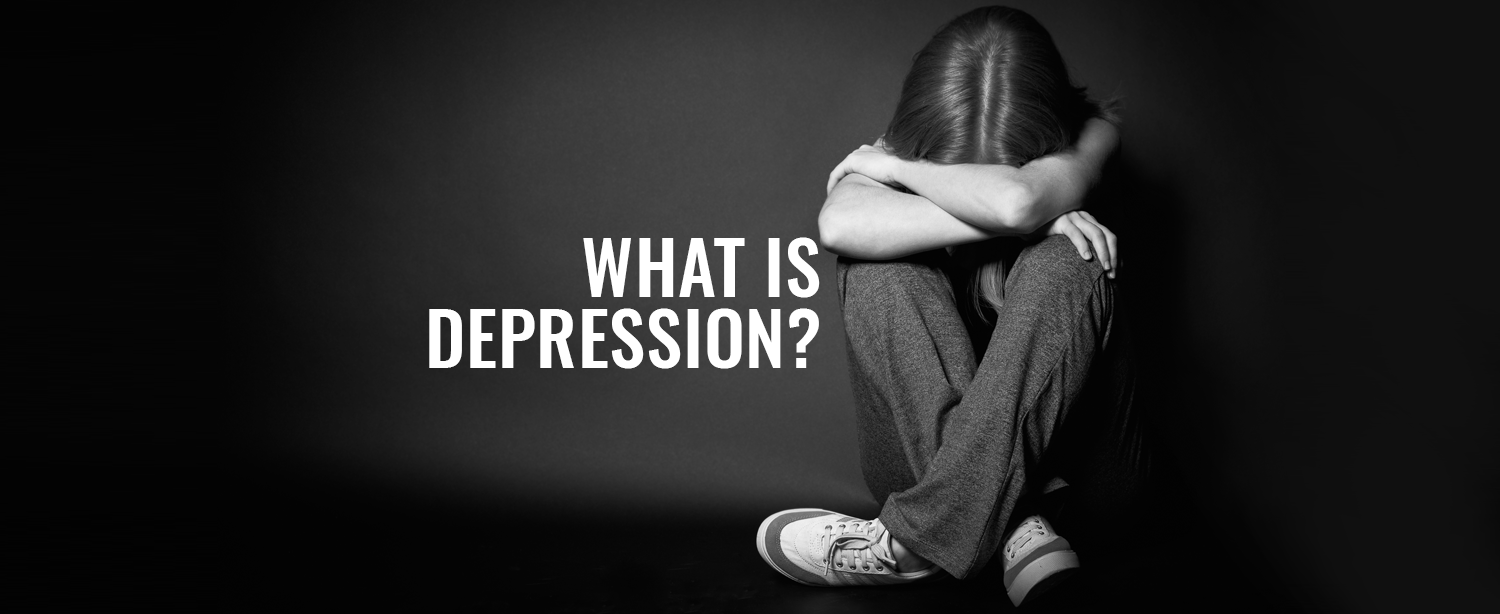Depression is a mood disorder that causes a persistent feeling of sadness and loss of interest. Clinical depression affects how you feel, think and behave and can lead to a variety of emotional and physical problems. Sometimes you may find it difficult to even lead your daily life and complete your routine chores. Depression requires long-term medical treatment. But don’t get discouraged. Most people with depression feel better with medication, psychotherapy or both.
What causes depression?
Depression usually results from a combination of recent events and other longer-term or personal factors. Here are a few causes:
- Life events – Long-term unemployment, living in an abusive or uncaring relationship, long-term isolation or loneliness, prolonged work stress – are some factors that may lead to depression.
- Family history – Depression can run in families and some people will be at an increased genetic risk.
- Personality – Some people may be more at risk of depression because of their personality, particularly if they tend to worry a lot, have low self-esteem, are perfectionists, are sensitive to personal criticism, or are self-critical and negative.
- Serious medical illness – The stress and worry of coping with a serious illness can lead to depression, especially if you’re dealing with long-term management and/or chronic pain.
- Drug and alcohol use – Drug and alcohol use can both lead to and result from depression. Many people with depression also have drug and alcohol problems.
Symptoms
Although depression may occur only once during your life, people typically have multiple episodes. During these episodes, symptoms occur most of the day, nearly every day and may include:
- Feelings of sadness, tearfulness, emptiness or hopelessness.
- Angry outbursts, irritability or frustration, even over small matters.
- Loss of interest or pleasure in most or all normal activities, such as sex, hobbies or sports.
- Sleep disturbances, including insomnia or sleeping too much.
- Tiredness and lack of energy, so even small tasks take extra effort.
- Reduced appetite and weight loss or increased cravings for food and weight gain.
- Anxiety, agitation or restlessness
- Slowed thinking, speaking or body movements
- Feelings of worthlessness or guilt, fixating on past failures or self-blame.
- Trouble thinking, concentrating, making decisions and remembering things.
- Frequent or recurrent thoughts of death, suicidal thoughts, suicide attempts or suicide.
- Unexplained physical problems, such as back pain or headaches.
Forms of Depression
Here are a few common types of Depression:
- Psychotic depression occurs when a person has severe depression plus some form of psychosis, such as having disturbing false beliefs or a break with reality (delusions), or hearing or seeing upsetting things that others cannot hear or see (hallucinations).
- Major depression is when it affects your ability to work, sleep, study, eat, and enjoy life. An episode can occur only once in a person’s lifetime, but more often, a person has several episodes.
- A person diagnosed with persistent depressive disorder may have episodes of major depression along with periods of less severe symptoms, but symptoms must last for 2 years.
- Seasonal affective disorder (SAD), which is characterized by the onset of depression during the winter months, when there is less natural sunlight.
- Postpartum depression, which is much more serious than the “baby blues” that many women experience after giving birth, when hormonal and physical changes and the new responsibility of caring for a newborn can be overwhelming. It is estimated that 10 to 15 percent of women experience postpartum depression after giving birth.
How to help a loved one suffering from Depression?
Here are a few things to note while helping someone with Depression:
- The symptoms of depression aren’t personal. Depression makes it difficult for a person to connect on a deep emotional level with anyone, even the people they love the most. It’s also common for depressed people to say hurtful things and lash out in anger.
- Hiding the problem won’t help. It doesn’t help anyone involved if you try making excuses, covering up the problem, or lying for a friend or family member who is depressed. This may keep the depressed person from seeking treatment.
- Depression is a serious condition. Don’t underestimate the seriousness of depression. Depression drains a person’s energy, optimism, and motivation. Your depressed loved one can’t just “snap out of it” by sheer force of will.
- Your loved one isn’t lazy. When you’re suffering from depression, just thinking about doing the things that may help you to feel better can seem exhausting or impossible to put into action. Have patience as you encourage your loved one to take the first small steps to recovery.
- You can’t “fix” someone else’s depression. As much as you may want to, you can’t rescue someone from depression nor fix the problem for them. Patience, professional help and patients support helps treat depression.
Can Depression lead to suicide?
Suffering from major depression does increase suicide risk compared to people without depression. The risk of death by suicide may, in part, be related to the severity of the depression.
Depression is treatable
The treatment for depression usually involves a combination of self-help, talking therapies and medicines. The treatment recommended will be based on the type of depression you have. Psychodynamic psychotherapy, cognitive behavioural therapy (CBT), counselling, interpersonal therapy(IPT) are some therapies commonly used. Please find below link to our Department of Psychiatry for further assistance:
https://www.kokilabenhospital.com/departments/clinicaldepartments/psychiatry.html


